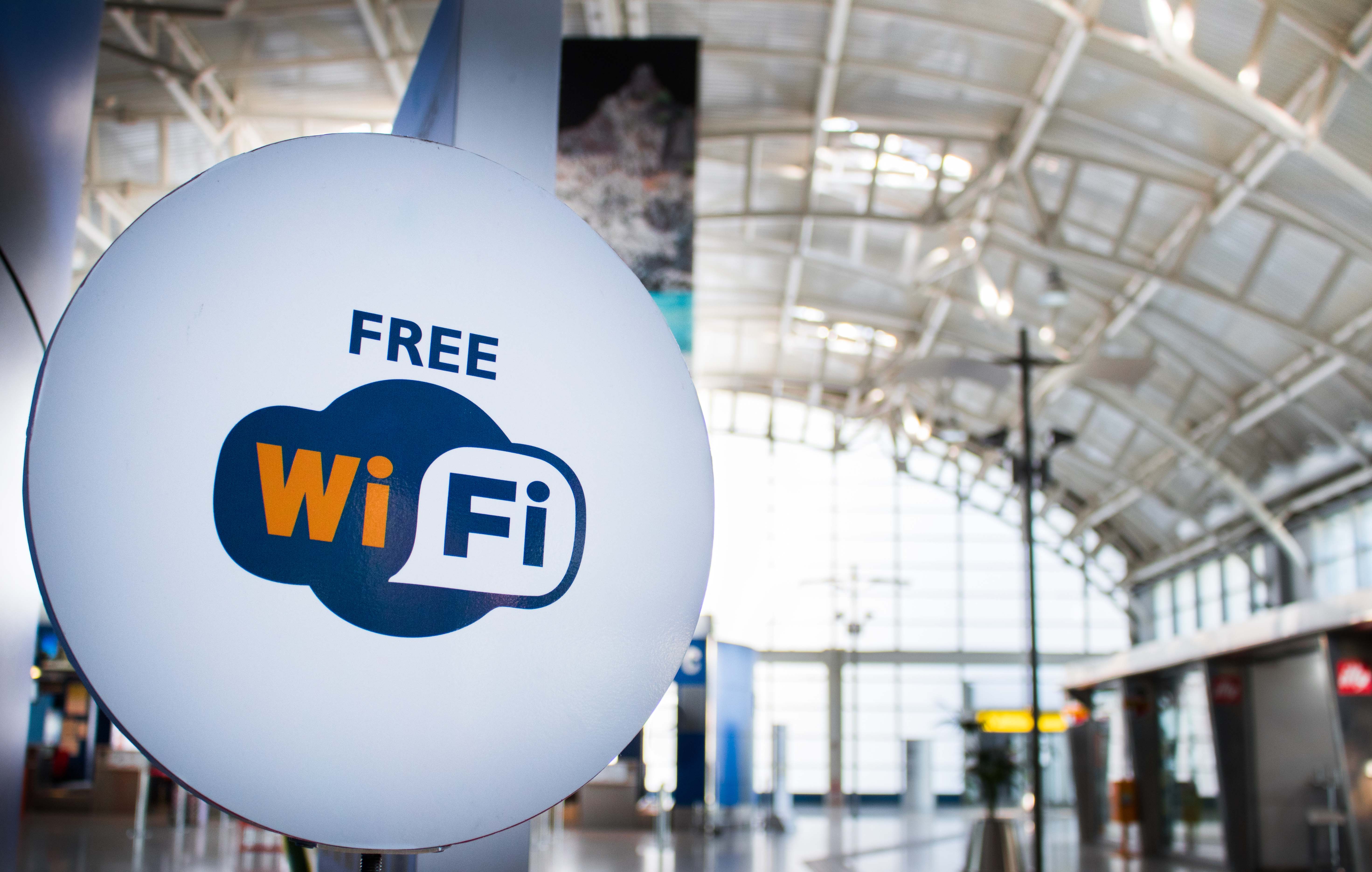
Free wi-fi signboard in airport, wifi zone. Igor-Martis_Shutterstock.
Amid reports that July and August are the busiest months for Brits to go on holiday, experts at Scams.info have provided expert tips on how to avoid the most widespread scams targeting tourists abroad.
Transport – When taking trips abroad, it’s vital to consider how you will travel throughout the country beforehand. Unregulated airport taxis could take advantage of the fact that you aren’t local and may be uneducated on typical fares. As a result, you could be charged extremely high rates or taken to the incorrect destination which pay the taxi a finder’s fee, rather than the hotel, restaurant or particular business you requested.
To avoid this, travelers should always research reliable, licensed taxi firms rather than getting into the first one they see. In the majority of countries, taxi drivers are required to carry and display their ID badge in the vehicle. Always ask the driver what the fare will be, before starting the journey. If the driver refuses to show you their ID or pre-warn you of fares, book with another taxi firm and do not enter the vehicle.
Hotel and Accommodation – When booking accommodation online, ensure to fully research the facility before booking. Look for reviews with images and check to make sure it’s a registered building. More and more adverts are appearing to show accommodation that isn’t real, outdated and different to the visuals provided. By booking through reputable travel agencies, you can avoid illegitimate accommodation as the agency will cover all of the above bases for you.
Public Wifi – Most hosts will offer holidaymakers the services of their shared public WiFi. Whilst this is convenient, it’s key to remember that public WiFi may not be as secure as your private network at home. When browsing the internet, make sure you don’t use sites and apps that involve inputting personal information, like contact details or bank card details. Alternatively you can download a VPN, which will allow you to block any unwarranted third party companies from accessing your data.
Pickpockets – Pickpocketing is the oldest scam in the book, but now more than ever, scammers are becoming increasingly creative. Scammers may interact with you directly, to allow time for a third party to steal from under your nose whilst you’re distracted. When in crowded, public spaces, it’s always vital to keep your personal belongings close by. It’s best practice to leave valuables at home, but if you must bring them with you, store them in a money belt or bum bag to prevent theft.
Activities and excursions – When booking excursions or additional activities during your trip, always book through an official company. Some illegitimate companies may lack the health and safety precautions necessary to keep you safe abroad. The safest option is to book any extra activities or excursions directly through the official travel agency that you booked your trip with. If you choose to book with a third-party, thoroughly research the company beforehand and always look at previous customer reviews.
Photography – It’s important to note that no landmark will have official photographers. Companies that claim to do so are likely to insist that only their photos are permitted, but this is just a ploy to force you into paying them for something that is otherwise free. To avoid this, always consult staff working in or nearby landmarks as they will likely have great general knowledge of the area and be able to advise you on any photography regulations.
Gambling – Make sure to thoroughly research any casino games you may take part in whilst on holiday, to avoid being scammed. Casino staff may explain a game to you in a lengthy way to take advantage of the fact that you lack knowledge in this area, and may favor the casino. Scams.info have provided six famous examples of Vegas Casino scams in their recent article, here.




